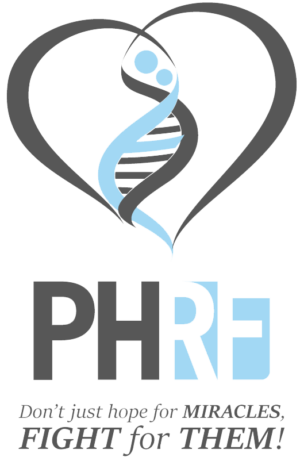Fall 2013: Six Research Awards given, totaling $330,000
Fall 2013: Six Research Awards given, totaling $330,000
Dr. David Sweat, University of Alabama Birmingham
$80,000; one year grant
New Research Into the Neurobiological Basis of PTHS: Researchers at UAB will investigate the cognitive dysfunction associated with PTHS, focusing on the role of the TCF4 transcription factor in learning and memory formation. Scientists will measure differences in learning between wild-type mice and a genetically engineered mouse model for PTHS. These mice will additionally facilitate the screening of potential drug candidates relevant to learning and intellectual disability in humans.
Dr. Stephen J. Haggarty, Harvard Medical School, Massachusetts General Hospital
$80,000; one year grant
Generation and Characterization of Pitt-Hopkins Syndrome Stem Cell Models: Harvard researchers have developed patient-specific, induced pluripotent stem cell (iPSC) models for PTHS. These will be used to map synaptic pathways dysregulated due to insufficient TCF4 in the brains of individuals with PTHS. As with mice models, iPSC are tools for comparing synaptic function between normal and disease cells in PTHS, or in related “synaptic” disease (Fragile X, Rett Syndrome). Disease specific iPSC provide an additional tool for exploring therapeutic manipulation in PTHS.
Dr. Hazel L. Sive, Massachusetts Institute of Technology
$50,000; one year grant
Characterization and Therapeutic Screening of Pitt-Hopkins Syndrome using the Zebrafish: Work at MIT using zebrafish will further expand the toolbox for studying PTHS. Zebrafish are uniquely suited to studying mutation specific effects in disease. At present, the genotype-phenotype relationships are not well understood for PTHS. Understanding phenotypic variation may additionally guide drug discovery ahead.
Dr. Courtney Thaxton, Dr. Benjamin D. Philpot and Dr. Mark Zylka, University of North Carolina at Chapel Hill
$50,000; one year grant
Identification of genetic and molecular targets for Pitt-Hopkins Therapeutics: Work at UNC will compare and contrast the molecular consequences of TCF4 haplo- insufficiency due to gene deletion vs. effects due to a recurring point mutation in TCF4. Whole genome analysis will be used to examine pathways dysregulated by TCF4 error, whether gene deletion or mutation, in primary brain neurons. Differences in expression between these disease models are predicted to reveal TCF4-relevant pathways and guide targeted drug development in PTHS.
Dr. Joseph D. Buxbaum, Icahn School of Medicine at Mount Sinai
$20,000; one year grant
The goal is to develop, qualify and distribute ChIP grade antibodies to TCF4: Once these are available, funding may be expanded to proceed with ChIP-Seq, a method used to analyze protein interactions with DNA. This will set the groundwork for identifying “target” genes of TCF4 in neurons, and will augment ongoing efforts to find therapeutics in PTHS.
Dr. Tonis Timmusk, Tallinn University of Technology, Estonia
$50,000; one year grant
Signaling pathways and compounds regulating transcriptional activity and phosphorylation of TCF4 protein in neurons: Each of us has two copies of every somatic (cells other than sperm/egg) gene. PTHS is a dominant disease, meaning that affected individuals have one mutated or deleted copy, and one healthy copy of the Ptcf4 gene. Turning up the volume of the available TCF4 protein produced by the healthy gene copy represents a novel approach to drug development in PTHS. Adding phosphate groups via phosphorylation acts as a switch to turn TCF4 on and off, thereby altering it’s function and activity. Researchers at Tallinn University of Technology will manipulate phosphorylation of TCF4 in hopes of increasing the activity of TCF4 in nerve cells, with the ultimate goal of identifying a therapeutic for PTHS.

